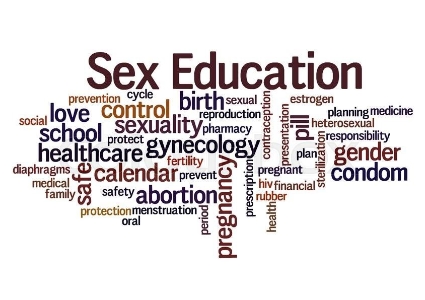Polling

Suggest an important issue not listed in this sub-category (). (Maximum 60 Characters)
Sex education

Sex education includes instruction on issues relating to human sexuality, anatomy, reproduction, sexual activity, disease, abstinence and birth control. In 2017, nearly 195,000 babies were born to women aged 15–19 years - an all-time low. Since 1991, the rates of teen pregnancy have dropped by half. In 2013, the CDC reported that birth rates for U.S. teens 15-19 years old dropped to a record low not seen since 1946. Each year, young people between 15 and 25 also contract about 10 million cases of sexually transmitted diseases including herpes, chlamydia and HIV. Studies have shown that teens who receive comprehensive sex education are 50% less likely to have an unintended pregnancy than those who haven’t. Advocates claim comprehensive sex education combined with emergency contraception are the reasons the rate of unintended pregnancy is so low.
Evaluations of sex education and STD prevention programs show they do not increase the rate of sexual initiation or lower the age at which youths initiate sex. These programs also do not increase the frequency of sex or the number of sex partners among sexually active youth. Studies also show that young Americans who pledge virginity and abstinence are just as likely as non-pledgers to contract STDs, and are also less likely to use contraception if they do become sexually active. More than 90% of the parents of junior high and high school students surveyed believe it is important their children be taught abstinence, pregnancy and STD prevention in school sex education programs.
Pending Legislation: S.1697 - Real Education and Access for Healthy Youth Act of 2023
Sponsor: Sen. Mazie Hirono (HI)
Status: Senate Committee on Health, Education, Labor, and Pensions
Chairperson: Sen. Bernie Sanders (VT)
Evaluations of sex education and STD prevention programs show they do not increase the rate of sexual initiation or lower the age at which youths initiate sex. These programs also do not increase the frequency of sex or the number of sex partners among sexually active youth. Studies also show that young Americans who pledge virginity and abstinence are just as likely as non-pledgers to contract STDs, and are also less likely to use contraception if they do become sexually active. More than 90% of the parents of junior high and high school students surveyed believe it is important their children be taught abstinence, pregnancy and STD prevention in school sex education programs.
Pending Legislation: S.1697 - Real Education and Access for Healthy Youth Act of 2023
Sponsor: Sen. Mazie Hirono (HI)
Status: Senate Committee on Health, Education, Labor, and Pensions
Chairperson: Sen. Bernie Sanders (VT)
Poll Opening Date
December 23, 2024
Poll Closing Date
December 29, 2024
Democracy Rules respects the privacy of your information.
See PRIVACY STATEMENT
See PRIVACY STATEMENT